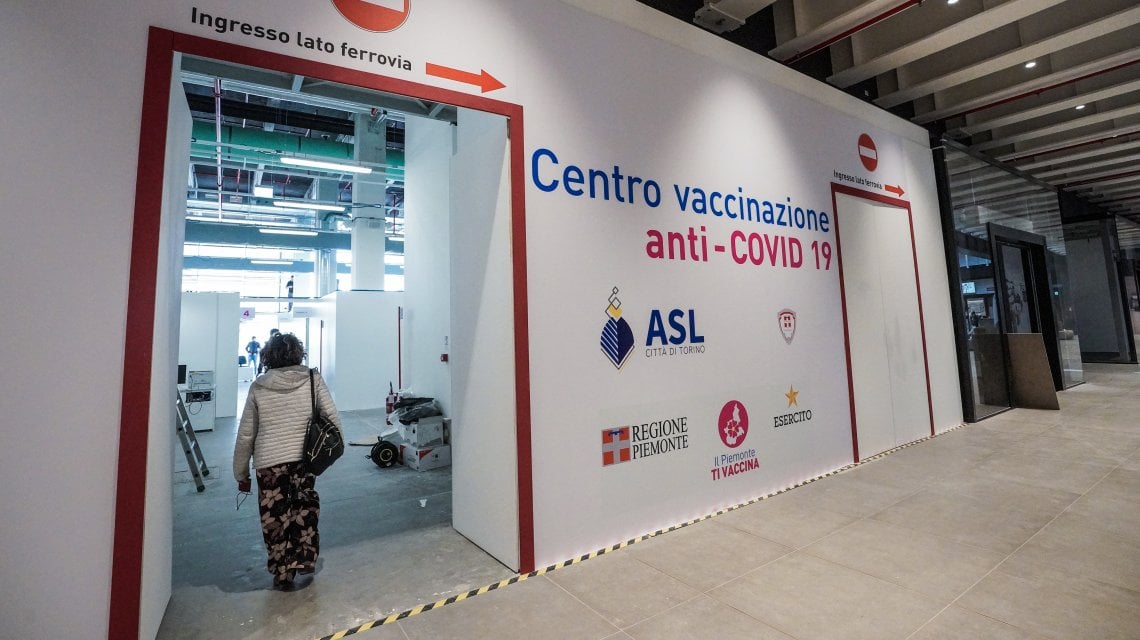As everyone was getting ready to leave 2020 behind, the Italian Government tried to set the right tone for the new year by launching the national vaccination campaign on 27 December 2020. The first vaccines were administered on 31 December. The campaign finally picked up after the Covid-19 Commissioner’s Vaccination Plan (Part II.C.24 of the Oxford Compendium Report for Italy) was approved on 12 March 2021 (Decree of the Ministry for Healthcare) and published on 13 March 2021.
Following the plan’s directions, the campaign initially followed a set of criteria, including age, exposure to risk, the type of vaccine, and its availability. During the first months of the campaign, priority was given to healthcare professionals, residents, and personnel in care facilities for the elderly and older people in general. Soon after, vulnerable people and people with serious disabilities were included in the latter priority list. Some regions, however, expanded the categories recognised as high-priority, creating stark differences between regional territories, ultimately slowing down the rate at which the categories identified by the Covid-19 Commissioner were being vaccinated. The decision by the Tuscan region to include people working in the justice sector as a high-risk priority category received the most attention from the media. At that time, Italy was still short of vaccines, and people over 80 had not been vaccinated yet. It was this situation that caused an uproar. It further exacerbated the complaints and issues regarding the relationship between national and regional governments and their respective remit (see Part I of the Oxford Compendium Report for Italy). As previously noted in this blog, and relation to another competence issue, the Italian Constitutional Court even stepped in to confirm the exclusive national power on public health policy during a pandemic.
The Commissioner, calling for greater clarity and homogeneity, issued Ordinance No 6/2021, in which he set the criteria and guidelines for all regions to follow. As well as the people falling under the abovementioned categories, the Commissioner indicated that vaccinations would follow specific age ranges. The initial priority was given to people over the age of 80, including fragile people exposed to severe risk, family members living in the same household, caregivers, parents, and guardians. Once most people falling within the latter categories were covered, the campaign reached out to other age ranges: those between 70-80 and 60-69. Since then, the campaign has been following this pattern, progressing by ten-year clusters at a time. At the moment, everyone from the age of 16 can get vaccinated, and following a recommendation issued by the European Medicines Agency (EMA) and approved by the Italian Medicines Agency (Agenzia Italiana del Farmaco – AIFA), the Ministry for Healthcare issued two internal communications authorizing the vaccination of teenagers between the ages of 12 and 15 (limited to the use of Comirnaty (Pfizer/BioNTech) and Moderna).
The campaign's trends
So far, Italy has received 71.3 million doses, 67.5 million of which have been used. The doses were distributed among regions based on their population. Lombardy received the most significant number of vaccines (12 million), followed by Lazio (7 million). AIFA authorized the use of four vaccines: Pfizer/BioNTech (Comirnaty), Moderna, AstraZeneca (Vaxzevria), and Janssen.
The Italian Government forecasts that herd immunity will be reached by the end of September; other sources of information suggest that if the current trend remains unaltered, Italy should obtain herd immunity even before that by 31 August 2021. Considering the Government's latest decision to impose restrictions on all unvaccinated persons who do not hold a 'Green Pass' (see Statutory Decree No 105/2021), there are strong chances to reach this objective, as even those reluctant to get vaccinated can find a decisive argument for doing so. Notwithstanding the Government's firm stance, the possibility of reaching herd immunity entirely depends on the doses' availability.
The total number of vaccines inoculated per day has steadily increased since the start of the campaign, reaching considerable peaks over the past month and a half. At the moment, an average of 500,000 vaccines are being administered per day: Pfizer/BioNTech is the most used, followed by Moderna and Janssen, and Vaxzevria (AstraZeneca). Most people over the age of 80 have been vaccinated in nearly every region; for example, in Veneto and Tuscany, almost 100% of the over-80 population has been fully vaccinated. The rate falls, however, in some southern regions and the two islands. In Sicily, for example, 25.6% of the over-80 population has not responded to the campaign’s call, pushing some regions to find a way to reach out to them directly.
A call for more mandatory requirements?
As explained in this blog, practitioners and healthcare workers (in both public and private structures and pharmacies) are required to get vaccinated as a service condition. Despite this mandatory requirement, a small percentage of workers have not received the jab yet. According to the latest data, only 2.3% of the 9 million healthcare workers have not yet been vaccinated. Since the requirement came into force in April 2021, local health authorities have compiled a list of non-immunized workers and professionals. Very recently, the first suspensions have been issued.
The Commissioner has recently shown some apprehension with regards to school staff, expressing his concerns about the 215,000 individuals falling in this category who have not adhered to the vaccination campaign. He has been urging teachers and the personnel that has not been vaccinated yet to do so as soon as possible to guarantee a safe return to schools in September. Very recently, even the President of the Republic, Sergio Mattarella, expressed his concerns about schools, highlighting that their re-opening must be everyone's priority; in the hope that a feeling of collective responsibility would prevail, he defined vaccination as a moral and civic duty.
The possibility of introducing compulsory vaccination for this category is one of the hottest topics as the Government is finalizing its 'School Plan 2021', which will be presented next week to all local authorities and will guide schools' health protocols and their re-opening. A statutory decree introducing this mandatory requirement should have been issued this week. Still, following opposing views within the Government, particularly by Matteo Salvini, who has constantly expressed contrasting and confusing views about vaccines, the debate has been postponed to next week.
TWEET

